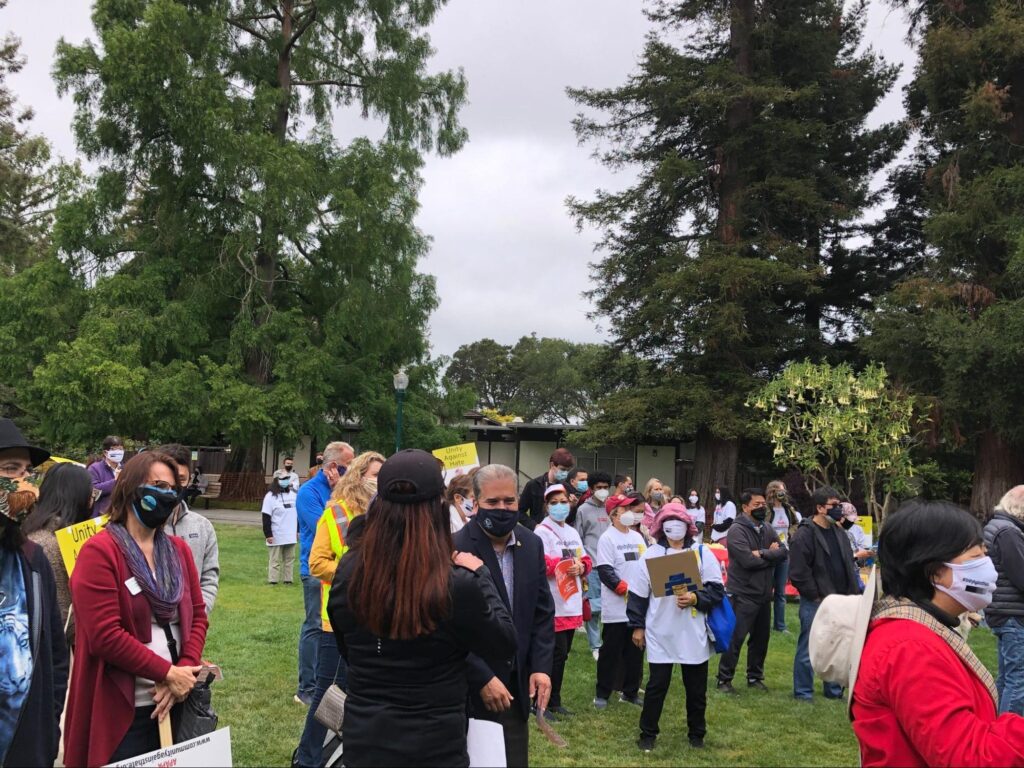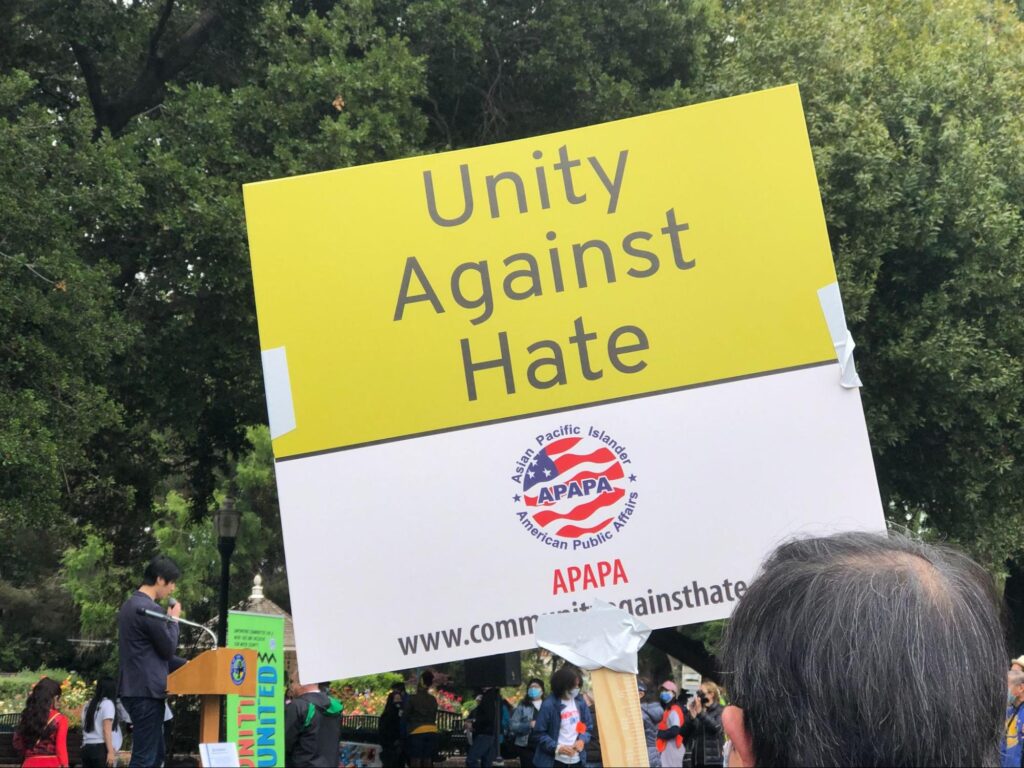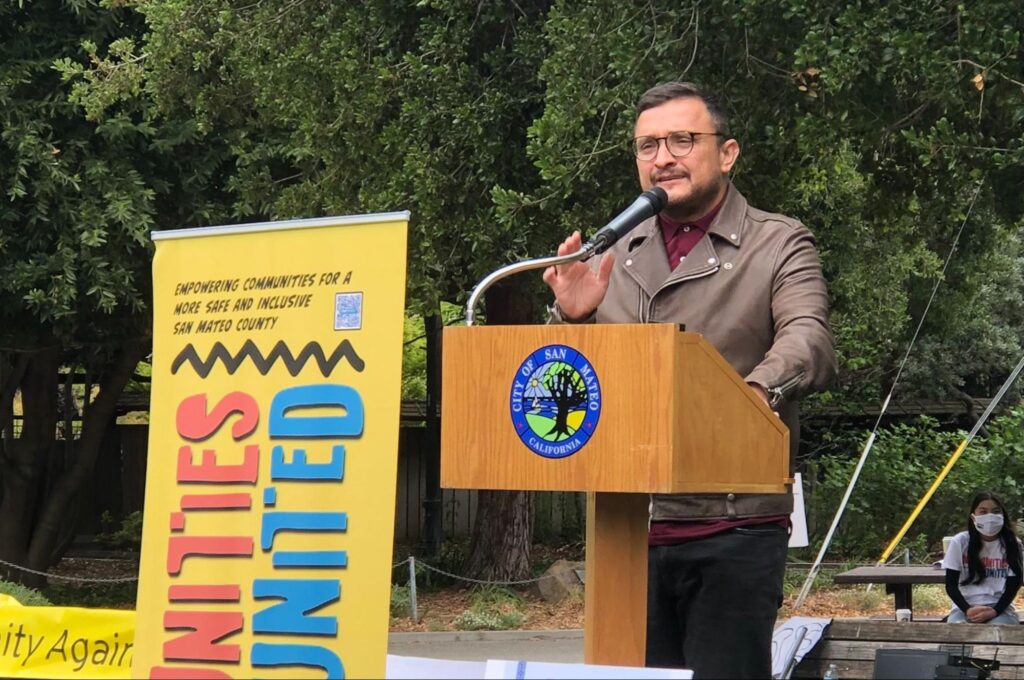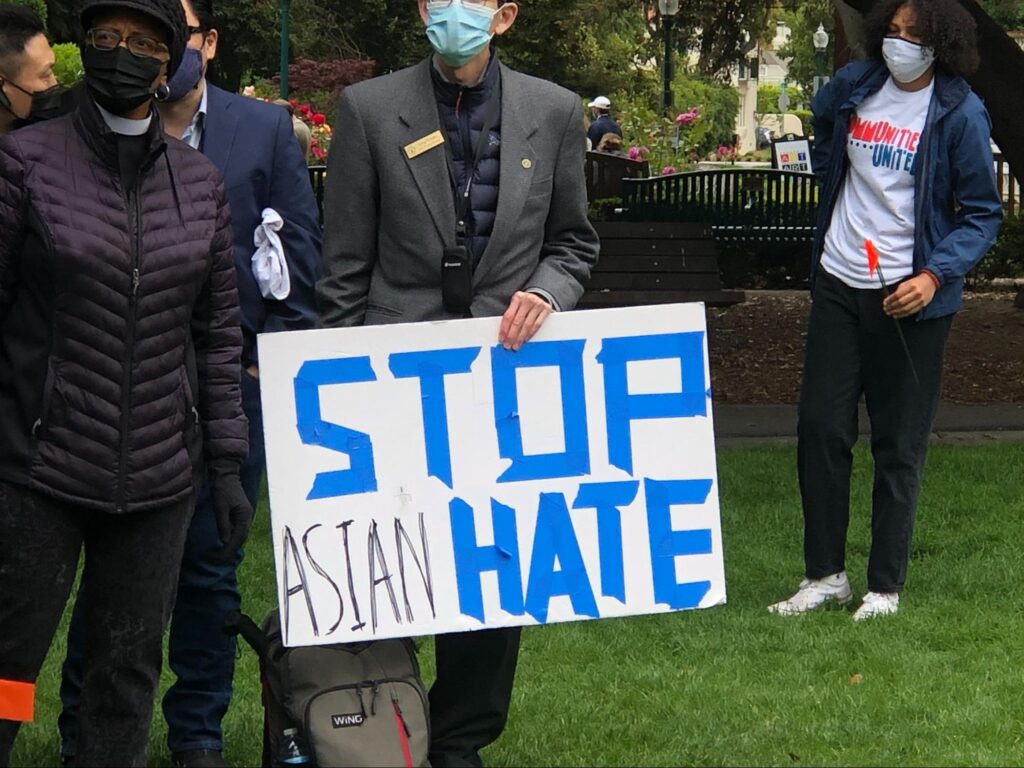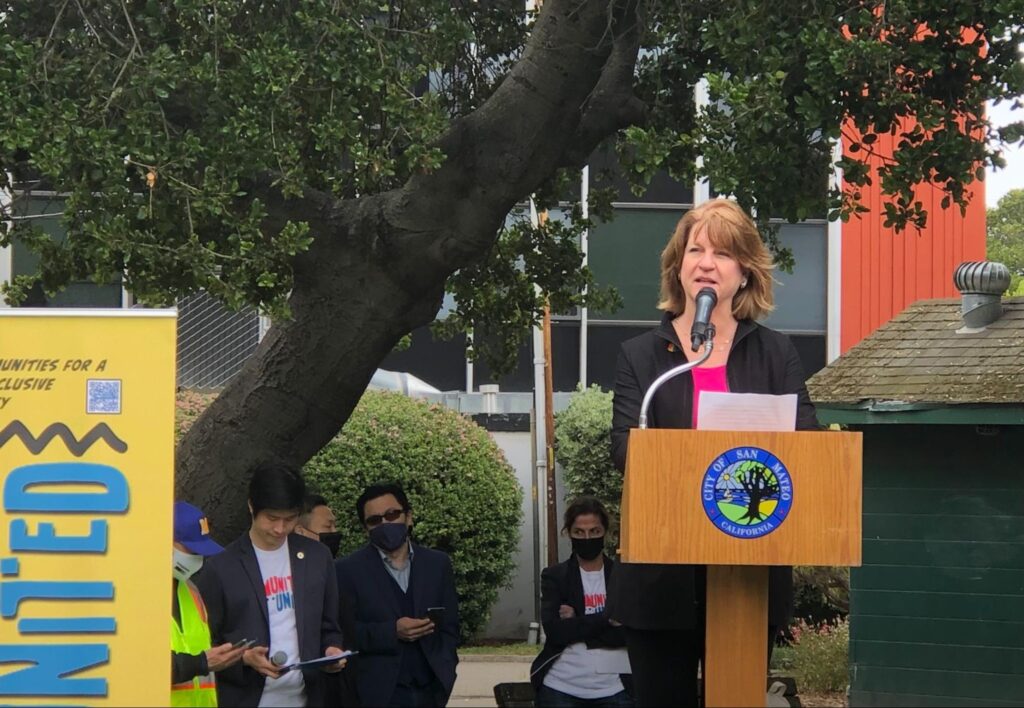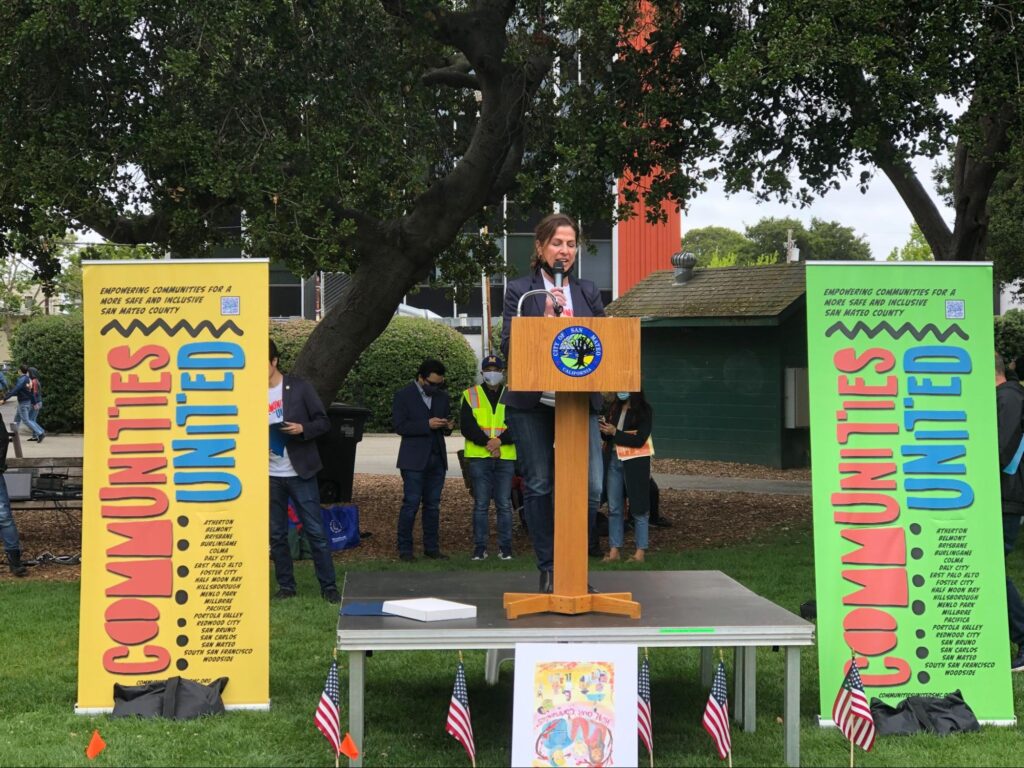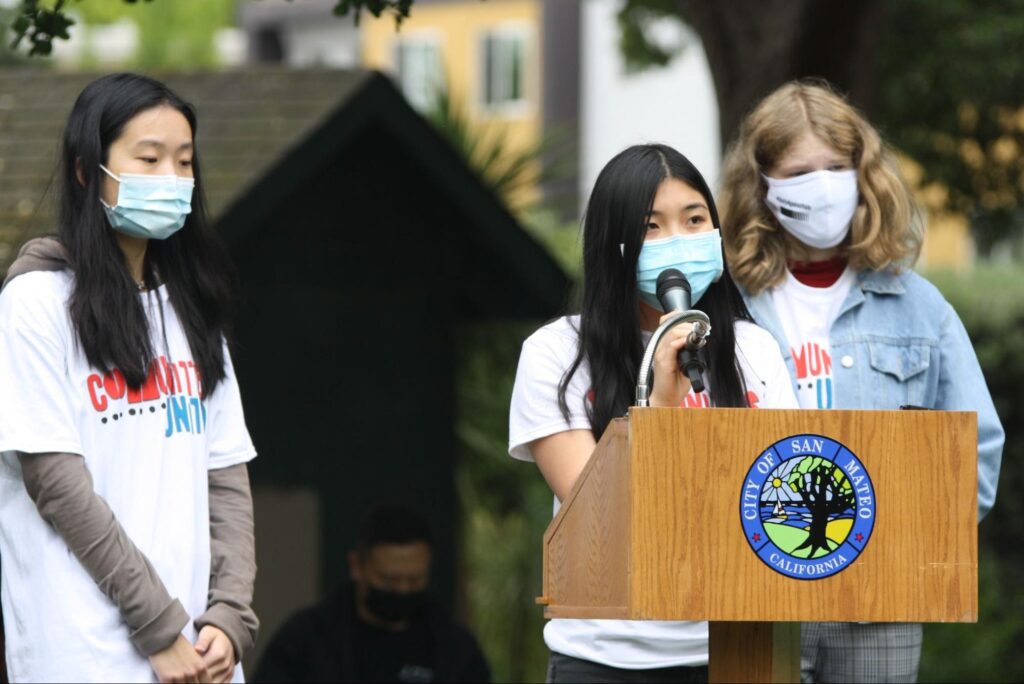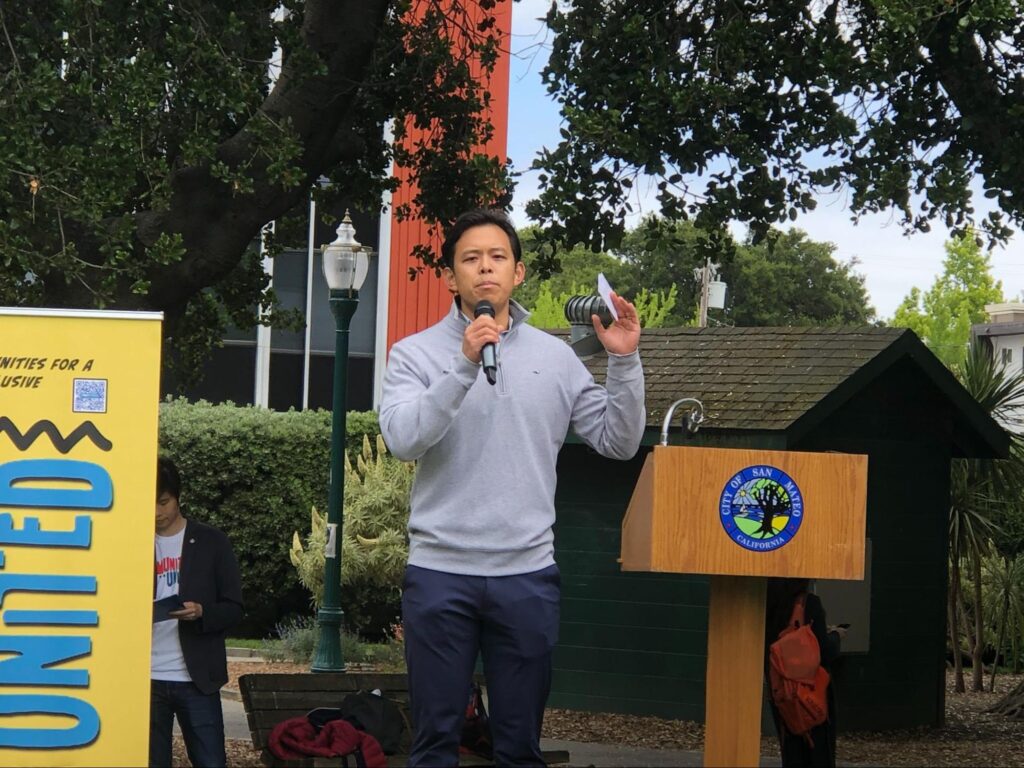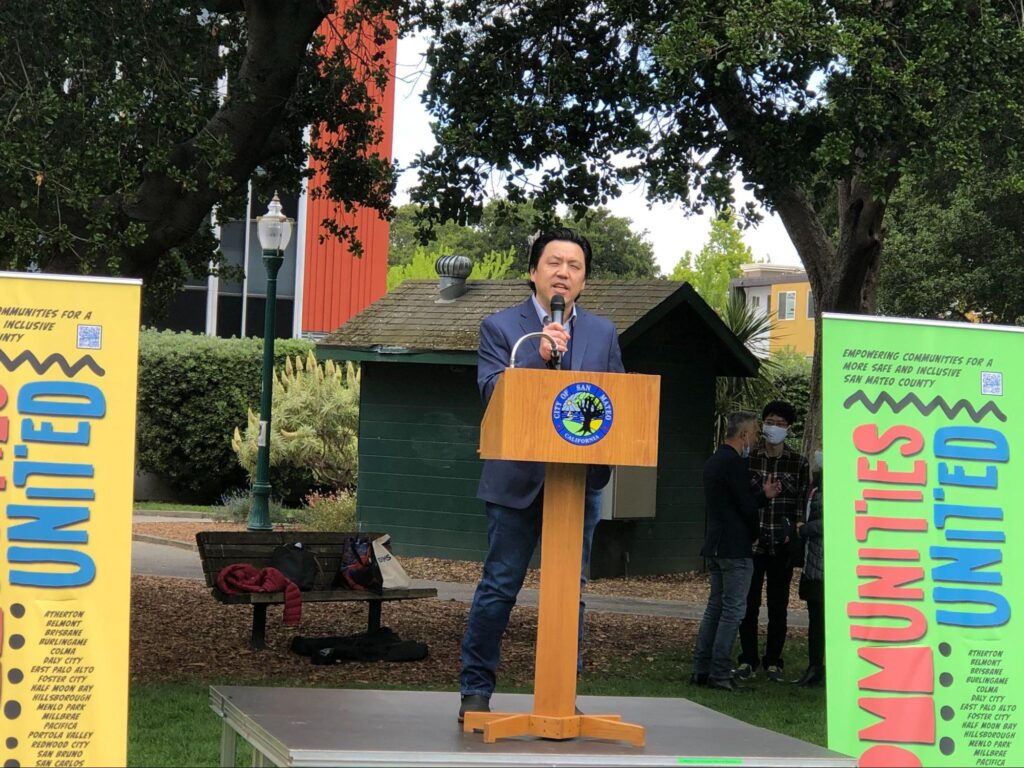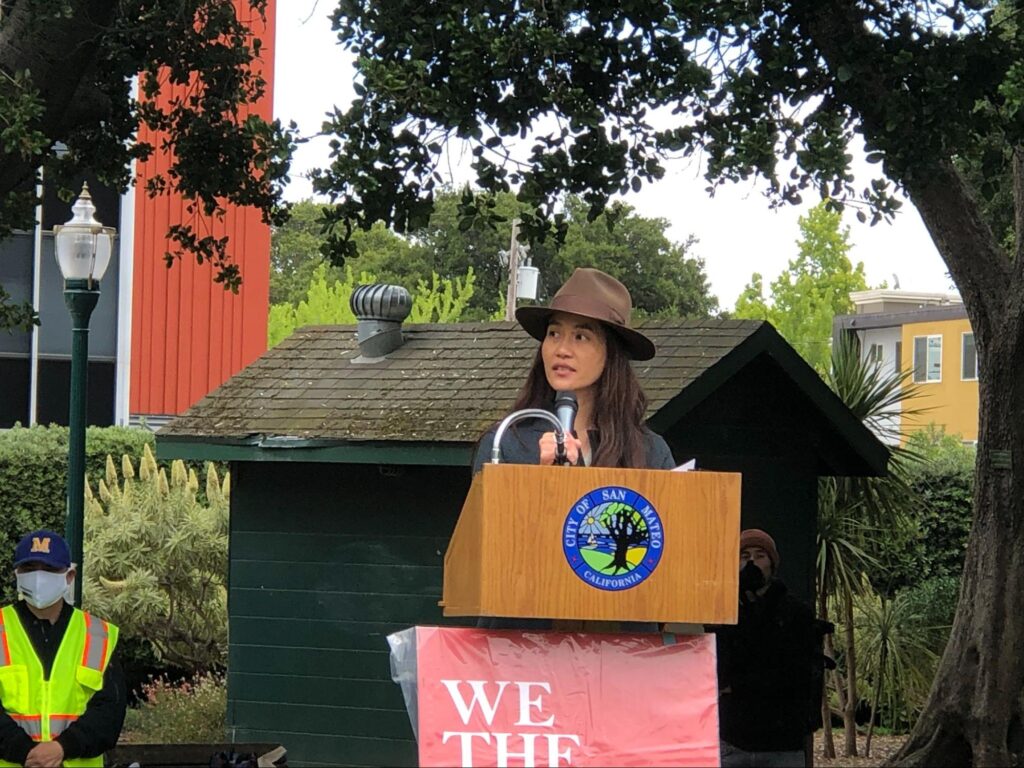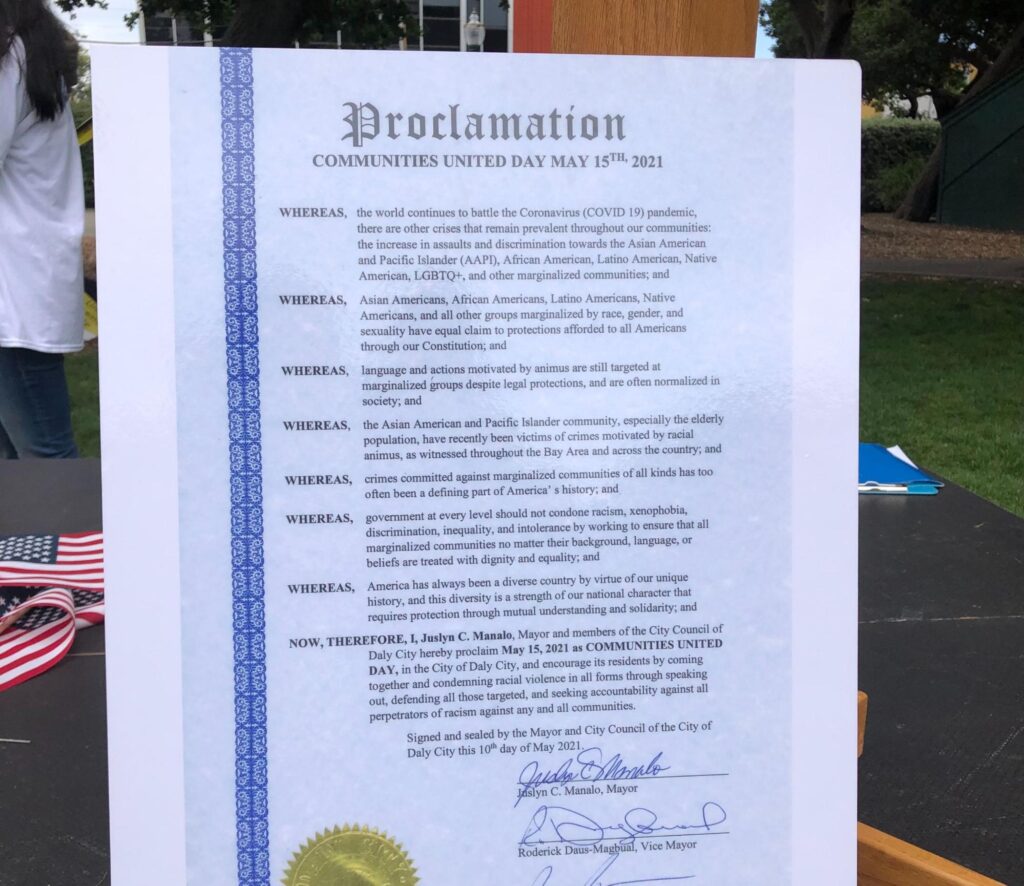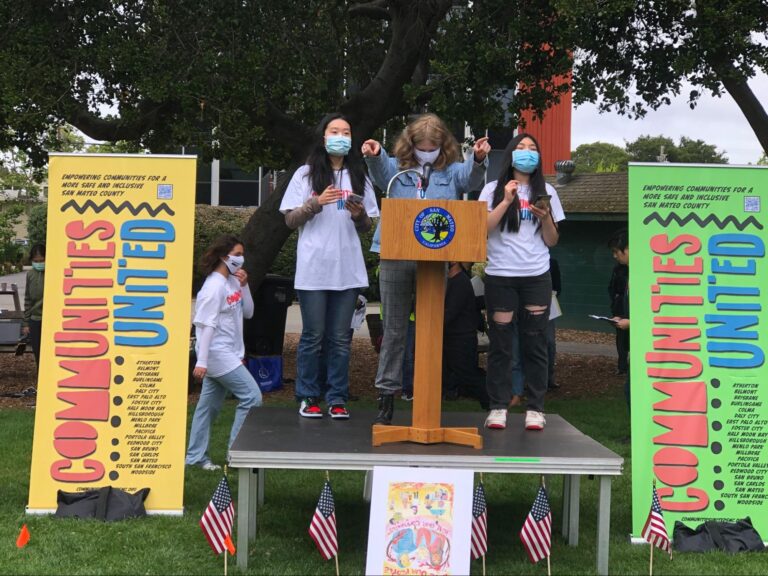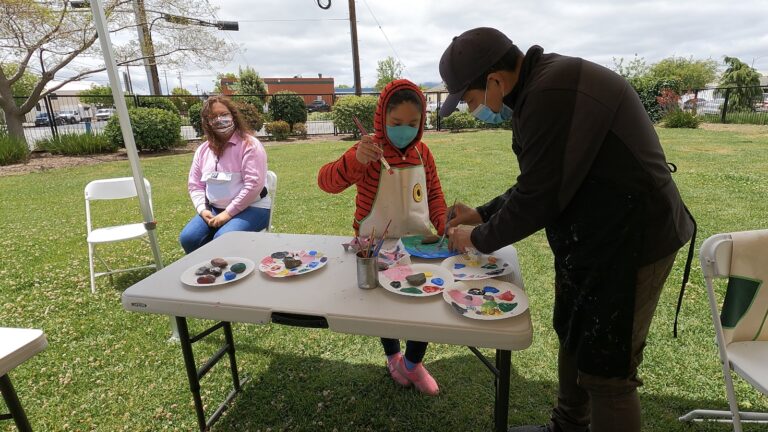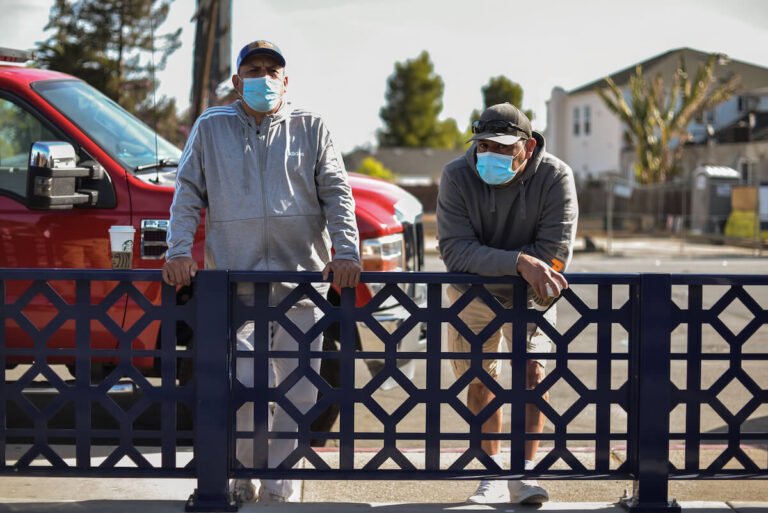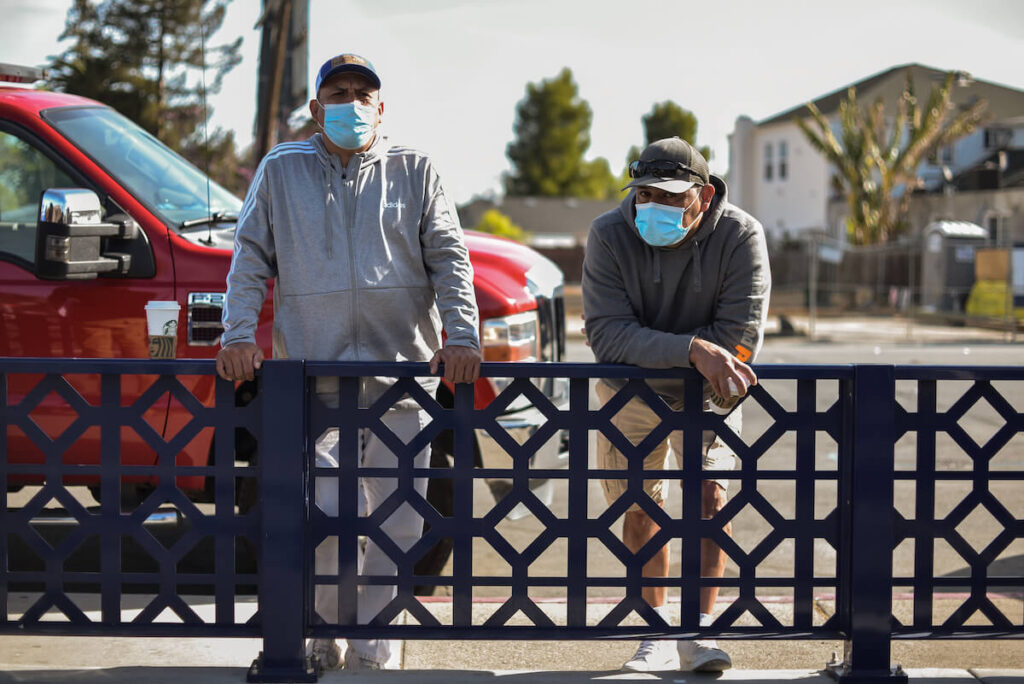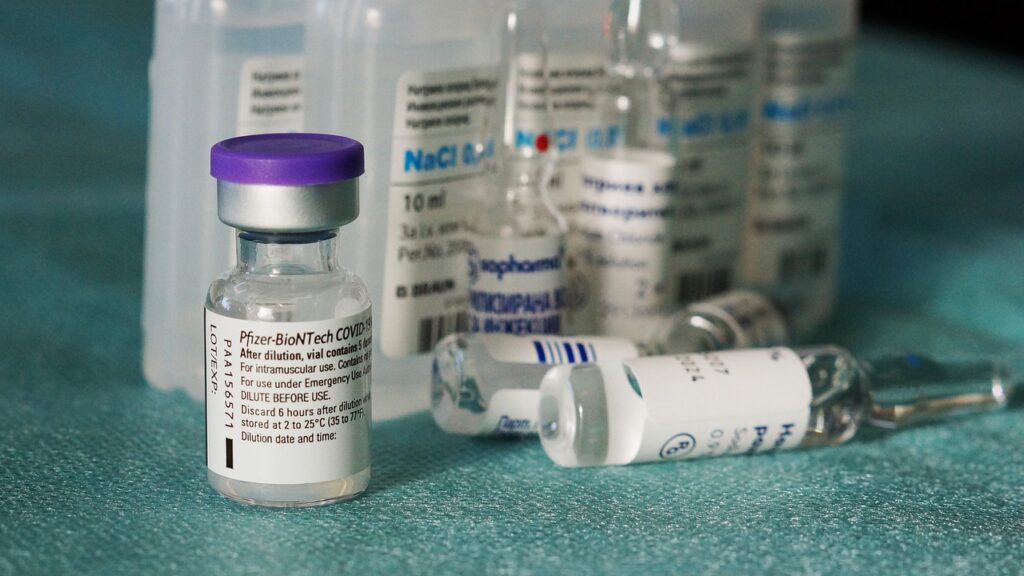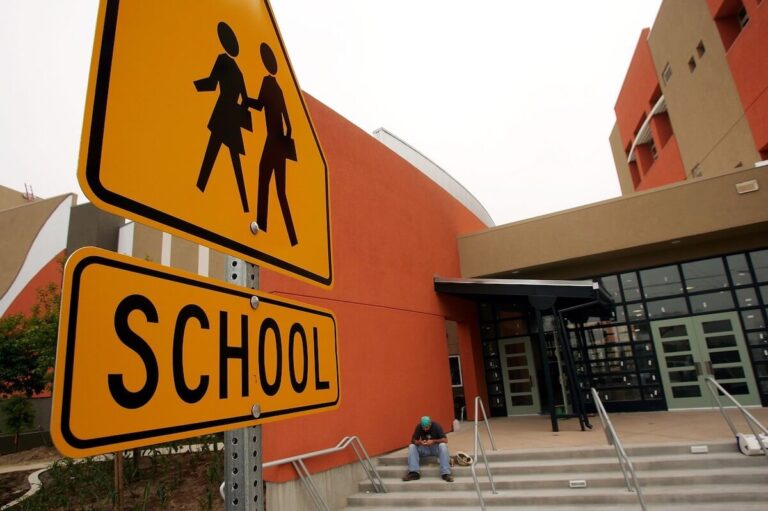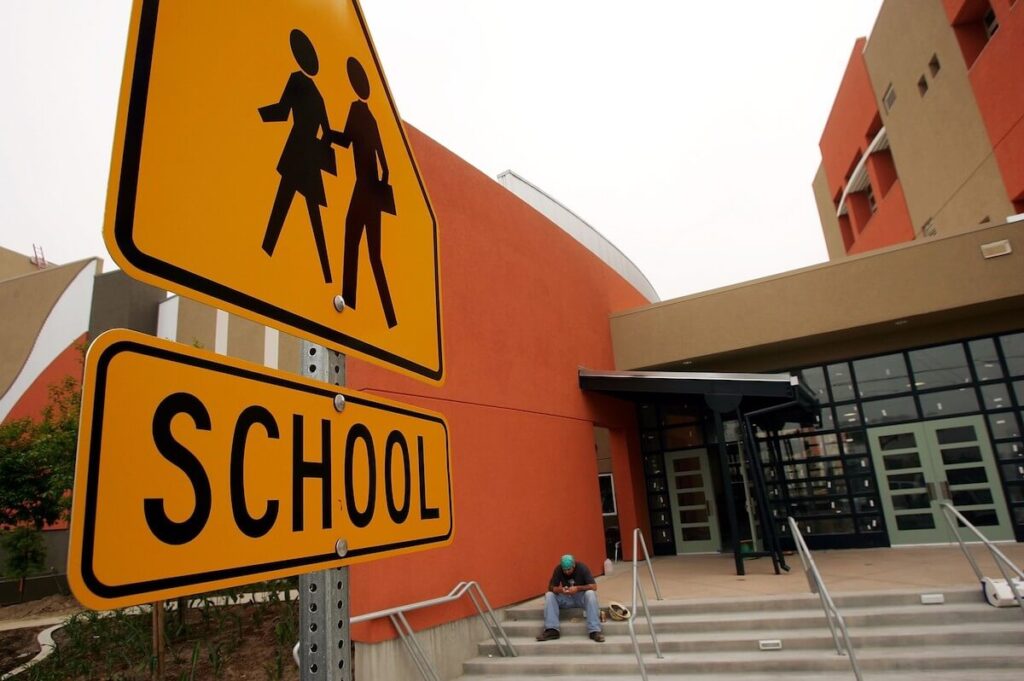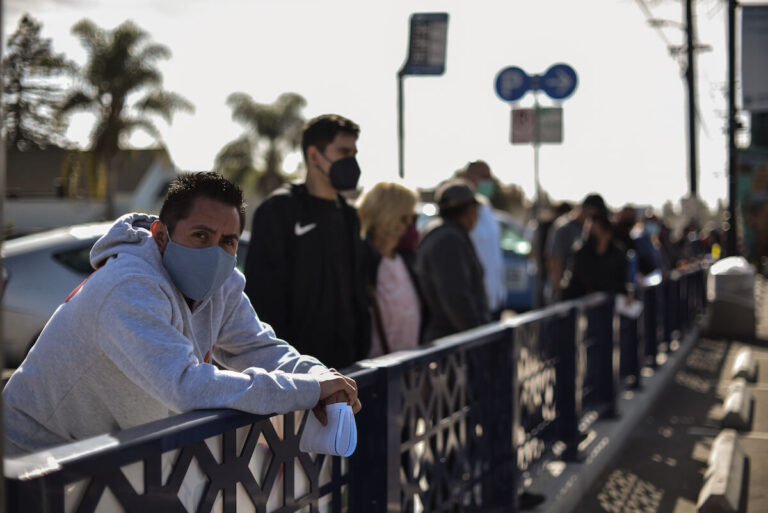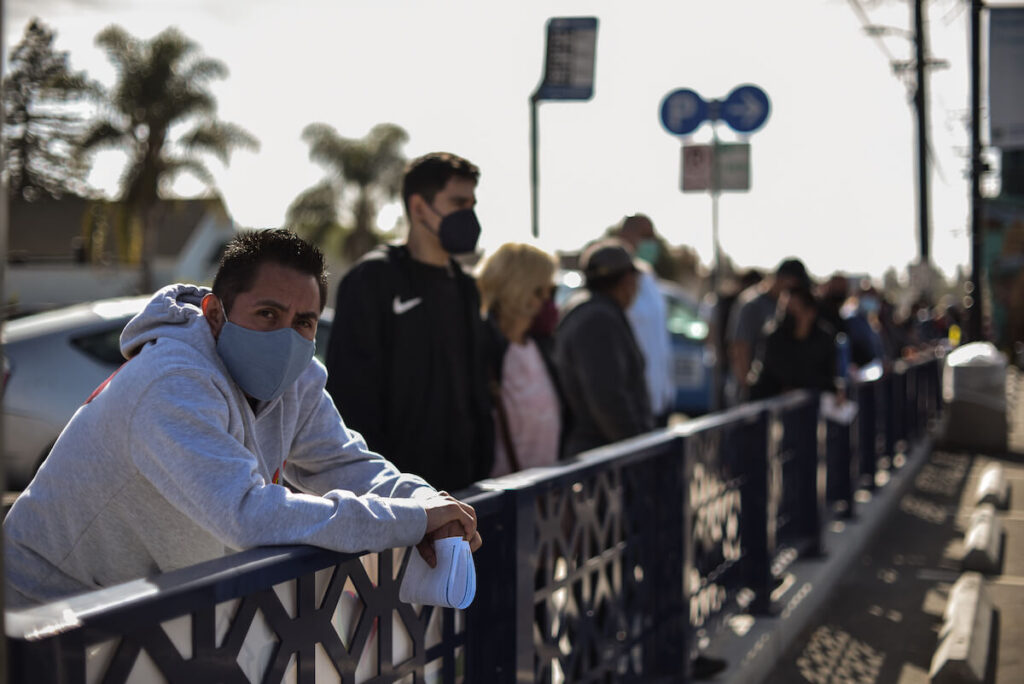
Noah Braunstein
The past year has seen a tumultuous series of events with our nation wrestling with issues rooted in identity and tolerance -- events borne out through contentious politics, hate crimes, and pandemic fueled racism and xenophobia.
As a young person in high school, I strive to channel my education and efforts into a path where I can contribute to a cohesive, accepting nation that is tolerant and inclusive for all.
I have been inspired by the many celebration months including African American History Month, Women’s History Month, Asian Pacific Islander Heritage Month, LGBTQ Pride Month, and more.
But one event amidst recent rallies stands out for me as an inspiration that embraces Inclusivity for all, and a chance for all marginalized communities to unite together -- working through Unity toward a tolerant nation that embraces rights, safety, and opportunity for all. It is a tribute to this movement, Communities United, that my story recognizes the recent May 15, 2021 rally proclaimed “Communities United Day” by cities in San Mateo County. This is a recap of this significant event.
Billy Pollina stood on the damp grass at San Mateo's Central Park and looked at some 300 people gathered on an overcast Saturday morning. The energy of the crowd -- of all ages and ethnicities -- easily cut through the weather. Their resolve was clear: Uniting against hate and injustice.
"As I recently planned with Millbrae Councilmember, Anders Fung, and community organizer Anthony Leung how to promote the #StopAsianHate efforts," said Pollina, film producer, and community activist, "I recalled the 2009 grassroots LGBTQ+ fight for marriage equality and how we were successful with the support of allies from other marginalized communities. This is the moment the idea for Communities United was born."
Fung, Leung, Pollina and student leaders collaborated with the Asian Pacific Islander American Public Affairs Association (APAPA) to produce the May 15 Communities United event -- to spotlight violence against Asians and to inspire a united front against discrimination and hate.
The past year has seen a dramatic rise in discrimination against Asians, with over 3800 reports of violencenationwide. These incidents have drawn national concern and a range of responses, from local"Stop Asian Hate"events to President Biden's May 20 Asian-American hate crimes legislation. signed into law by President Biden on May 20.
"This rally was an event that we wanted to put together because we wanted to be inclusive. We wanted to do something that was a little bit different than all the other rallies and events that were going on," Leung said.
The Communities United rally featured an impressive range of speakers and public officials to support the rally's theme of inclusivity -- including Congresswoman Jackie Speier, California Deputy Attorney General Eric Chang, State Senator Josh Becker, and numerous regional and local officials.
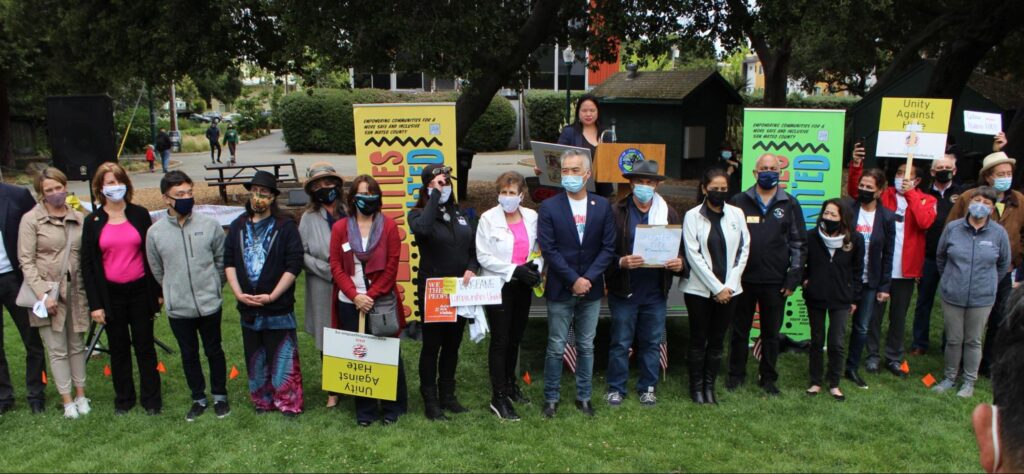
The speakers emphasized both Asian solidarity against discrimination and the need for marginalized communities to unify in support of each other.
Speakers recounted their family stories of immigrating to the United States, personal stories of encounters with injustice, and stories of how to love and be loving in the face of hatred.
David Campos, the vice-chair of the California Democratic Party, described his history as an immigrant, followed by reflection about the need for all to speak up against discrimination and injustices.
"The American dream is very powerful but very fragile. During the Nazi movement, so many people remained silent and held back. When you see injustice against one person, make sure you speak up because injustice against one is injustice against all of us," Campos said.
Campos' words about injustices were furthered by San Carlos' Mayor, Laura Parmer-Lohan. She referred to her experience as only one of seven women to have ever served on San Carlos' Council and also spoke passionately about her experience fighting for rights with a same-sex partner.
"My story is one of unity and love, and advocacy for what we can accomplish together when those from marginalized communities stand together," Parmer-Lohan said.
California Deputy Attorney General Eric Chang followed by describing the challenges his parents faced as immigrants. He challenged the crowd to lead the world by setting positive examples and taking action.
"It's time to walk away from the old past into something new. Here in the Bay Area, our ideas are often more than just ideas. Our ideas can change entire industries. Our ideas can change the world. Let's lead by example -- Vote, unite, change the world," Chang said.

Cheerleaders kept the crowd enthusiastic, as did chants from the crowd led by student organizers, including Mills High School's Lilian Chang, Aragon High School's Grace Xia, and Notre Dame High School's Lauren Fitzgerald. Pointing to the audience, the three young activists had the crowd chanting "Don't give up the fight! Get your rights.

The power of youth organizers being key at this event was not lost on State Senator Josh Becker.
"Whether it's been from the cities of Millbrae, Palo Alto, or San Carlos, it's been youth-led, and that's what's most exciting," Becker said.
Leung, who served as the emcee for the event, left words of advice for attendees, including many students and young people.
"What you need to do is put yourself out there. For some people, it's being an activist. For some people, it's working on policy. And for others, it's donating their time and effort to be involved in their communities," Leung said.
The event concluded with all 20 cities in San Mateo County adopting a proclamation for May 15 to be "Communities United Day."
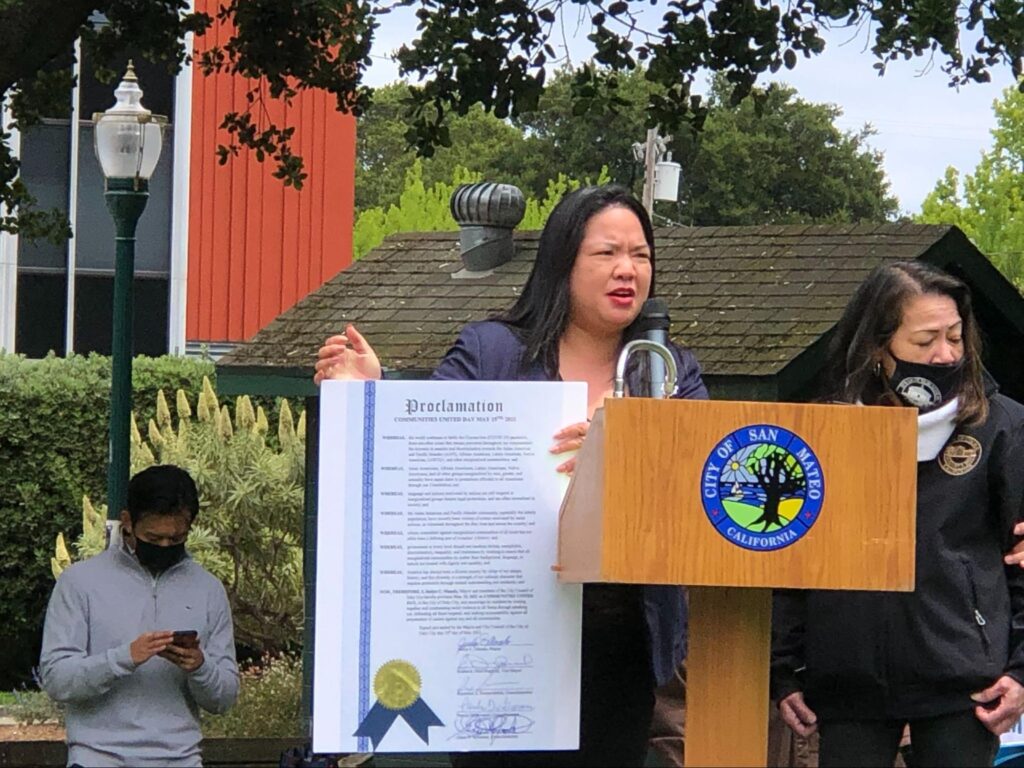
Organizers are optimistic for future Communities United events. Leung described the group's plans to pursue non-profit status, and Pollina spoke about plans for growth.
“We are exploring reforms and improvements for healthcare, housing, equal rights, prison reform, better law enforcement relationships with the community at large and financial equity,” Pollina said.
Xia encouraged all to find out about upcoming efforts, "Anyone is welcome to join."
While born out of troubling recent events of violence, Communities United is fired up to create change to live in a better, more just world.
PHOTO GALLERY:
